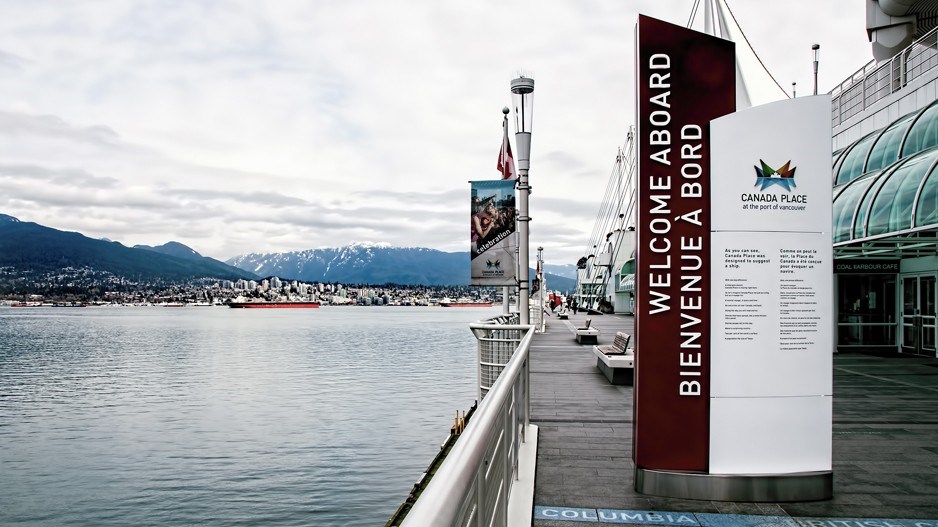Sixty street-level businesses in downtown Vancouver closed permanently in 2020, thanks to COVID-19 restrictions, according to a Downtown Vancouver Business Improvement Association (DVBIA) report. Granville Street was particularly hard hit.
Now, with the prospect of another full season without cruise ship visitors, more downtown business closures could follow in 2021, especially those that are most dependent on tourism.
The federal government’s 2020 ban on cruise ships entering Canadian ports has been extended to February 2022.
Prior to the ban, close to 300 cruise ships docked in Vancouver each year. That represents about 800,000 visitors spending millions in local hotels, restaurants, souvenir shops, shopping malls and tourist attractions.
For much of 2020, retailers, restaurants, nightclubs, souvenir shops and other Vancouver businesses lost a significant portion of their business to low office occupancies, as entire work forces vanished from the downtown core to work from home. Office landlords reported occupancy rates of between 10% and 30%, and as a result, daily average foot traffic for downtown businesses dropped 50%, according to the DVBIA.
The loss of roughly $800 million in tourism spending from cruise ships in 2020 deepened the “Great Suppression,” as DVBIA president Charles Gauthier likes to call it: a recession induced by border closures, lockdowns and other restrictions on commerce.
Downtown Vancouver businesses have survived downturns in tourism before. The 2008 financial crisis in the U.S., for example, resulted in a steep drop in American tourist spending in B.C. between 2008 and 2009.But those businesses could still at least rely on city residents and the thousands of people who work in downtown offices. That foot traffic largely dried up in 2020, however.
“It’s a double whammy,” said Gauthier. “We’re only averaging about 20% to 25% in terms of occupancy in the office buildings. That is very much the stock and trade of a lot of our retailers and restaurants. Now we’ve added a horrific drop in tourism.”
Later this year, his association hopes to see many office buildings reoccupied, as employees who are still working from home slowly begin to return. But the tourism dollars from cruise ships will again be missing in 2021.
The cruise industry is worth $2.7 billion to B.C., and injects more than $800 million into Vancouver’s economy each year. Much of that spending comes from passengers staying in Vancouver hotels, shopping and eating at local stores and restaurants and visiting the Vancouver Aquarium and other tourism destinations.
While various government supports have helped many businesses weather the pandemic, the loss of another cruise ship season could be the tipping point for some businesses.
“I think the next four to six months is going to be really telling,” Gauthier said. “It could be make or break for some of these businesses, and we may see more than the 60 that we’ve reported of street-level business closures.”
Some businesses districts were hit harder by the loss of cruise ships in 2020 than others. Gastown is particularly dependent on tourism; luxury retailers on Alberni Street were also hard hit, Gauthier said.
Occupancy at Vancouver hotels dropped to an average of 28% in 2020, partly due to the loss of tourists, including from cruise ships, as well as conventions and conferences.
Darren Simpson, general manager of The Burrard hotel and chairman of the Hotel Association of Vancouver, doesn’t see things improving much in 2021.
“Most hotels are down well over 80% in revenue in downtown Vancouver. There’s not many businesses that can survive a year with revenues … down 80%.”
Simpson added that his association had hoped to see at a least a limited number of cruise visitors allowed to come to B.C. in 2021.
Stefanie Schulz, executive director for the Gastown Business Improvement Society, estimated that 20 or more businesses closed permanently in Gastown in 2020. But she added that roughly as many new businesses opened.
The federal government’s extension of the cruise ship ban throughout 2021 was not unexpected, Schultz said.
“All we can do is to work with our neighbours to see how can we capture the local traveller.” •




